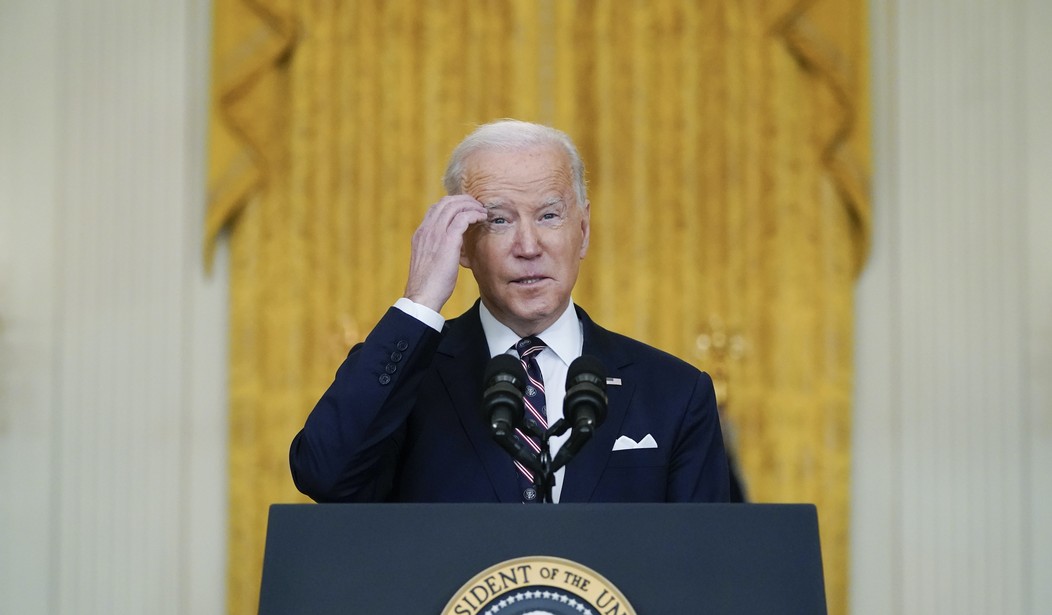This is pretty clearly a case of leading from behind. The White House has clearly been dragged to this new position over several days by both Republicans and Democrats.
As I pointed out last week, even as the tanks started rolling across the border with Ukraine, the Biden White House’s policy was to continue purchasing millions of barrels of oil from Russia every month. Why? Because the White House knew cutting off the Russian oil would result in higher gas prices, something which would likely hurt Democrats at the polls this fall.
As recently as yesterday, Nancy Pelosi said she was all for banning Russian oil but White House spokesperson Jen Psaki shot that down saying Biden’s goal was to maximize impact on Putin and Russia but minimize impact on the US. But today there are reports the White House is reconsidering its position.
President Biden is considering steps to reduce U.S. imports of Russian oil, the White House said Friday, as bipartisan support in Congress for a ban on the imports grows amid the Russian invasion of Ukraine.
“We are looking at options we could take right now to cut U.S. consumption of Russian energy, but we are very focused on minimizing the impact to families,” White House press secretary Jen Psaki told reporters during a briefing Friday afternoon. “If you reduce supply in the global marketplace, you are going to raise gas prices.”
I think the best argument for cutting off Russian oil is that continuing to buy it looks a lot like hypocrisy. As oil prices rise, do we want to be sending Putin billions of dollars to prop up his failing economy? Also, if the US fancies itself a leader of the free world shouldn’t we be willing to go all in on efforts to preserve Ukraine’s independence from the autocratic bully next door? But to be fair, there really is a good argument that cutting off Russian oil will hurt Americans more than it will hurt Putin:
Just 1% of Russia’s total crude oil exports in 2020 went to the United States, according to U.S. government figures.
So while cutting off that trade would force Russia to find other buyers for that relatively small amount of oil, it would not have as significant of an impact as if Europe — where Russia sends nearly half its oil — stopped them, experts told ABC News…
The U.S. relies on Russian oil more than Russia depends on sending its oil to the U.S., with about 7 to 10% of the United States’ imports of crude oil and petroleum products coming from Russia in recent years.
Nevertheless, Sens. Manchin and Murkowski have been pushing for a more aggressive stand.
NEW: Here is the DRAFT one-pager of the proposal to ban the U.S. from importing Russian crude oil and petroleum, obtained by NBC.
It’s led by Sens. Manchin and Murkowski, and is expected to have significant bipartisan support. Final text is still being worked on. pic.twitter.com/bWbrrZGixD
— Julie Tsirkin (@JulieNBCNews) March 2, 2022
Maybe one reason I’m not as horrified as some people seem to be by the possibility of higher gas prices is that here in California we already have gas prices that the rest of the country would consider shocking. Come to California where the worst has already happened!
California gas prices. pic.twitter.com/jMexLvm2Af
— John Sexton (@verumserum) March 2, 2022
In any case, even if the White House does pull the trigger on this, the reality is that parts of Europe can’t afford to follow our lead.
For the U.S., which sources only 5% of its crude oil and petroleum from Russia, sanctioning Russian fossil fuels would result in extremely high oil prices and worsening inflationary pressures.
But for countries like Germany, which source half their gas from Russia, “the worst case is that people start dying because they can’t heat their homes,” Adam Pankratz, a professor at the University of British Columbia’s Sauder School of Business, told Fortune.
“It means freezing and possibly dead Germans,” he said.
It’s a shame that Germany has insisted on shutting down its nuclear power plants. An alternative source of energy would be handy to have right about now.







Join the conversation as a VIP Member